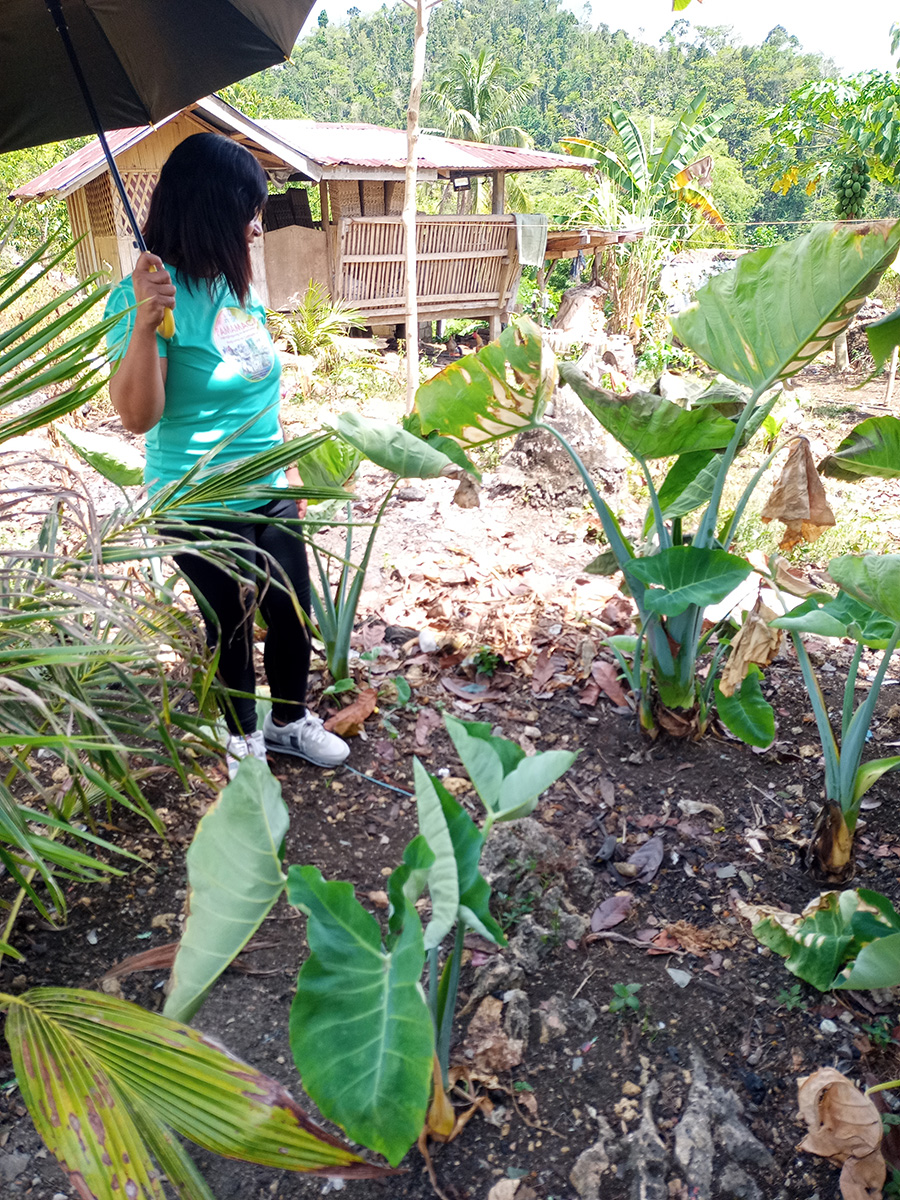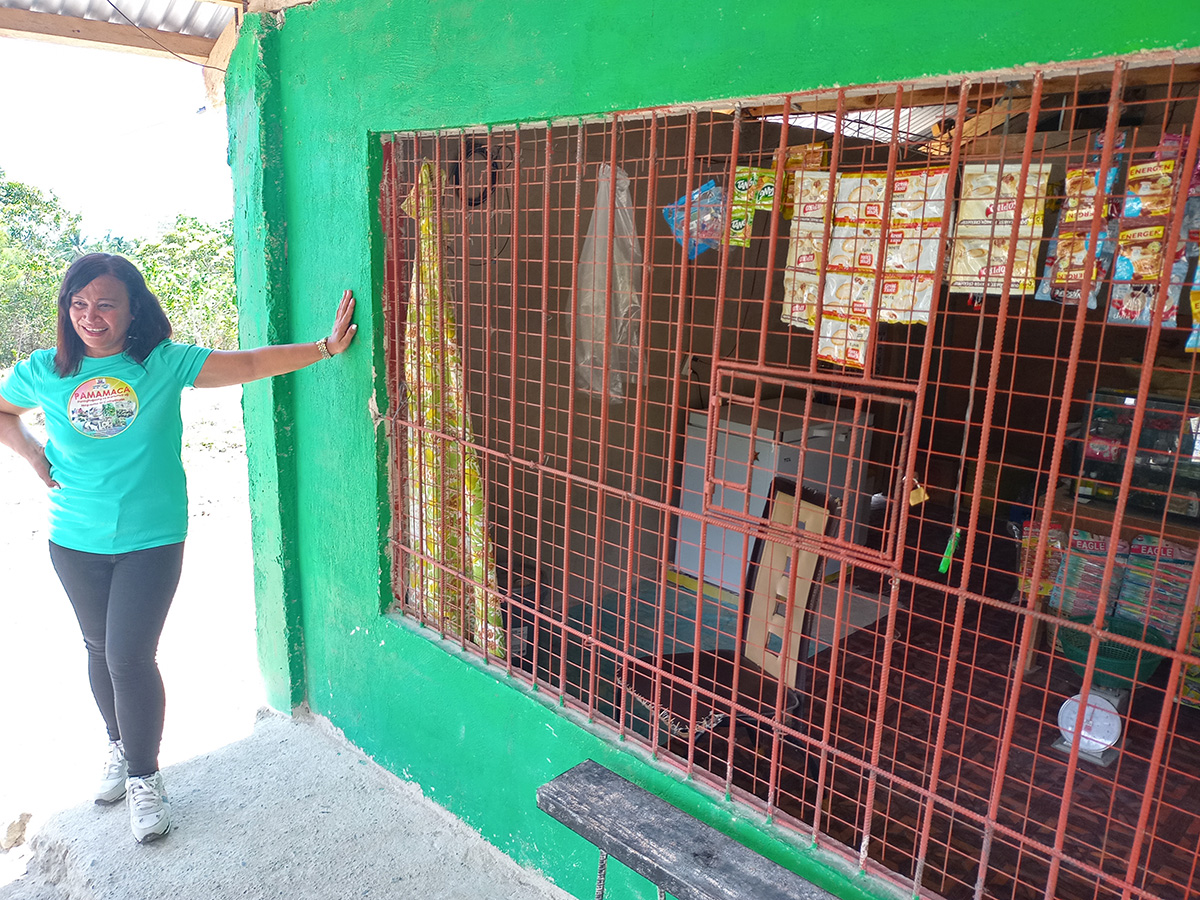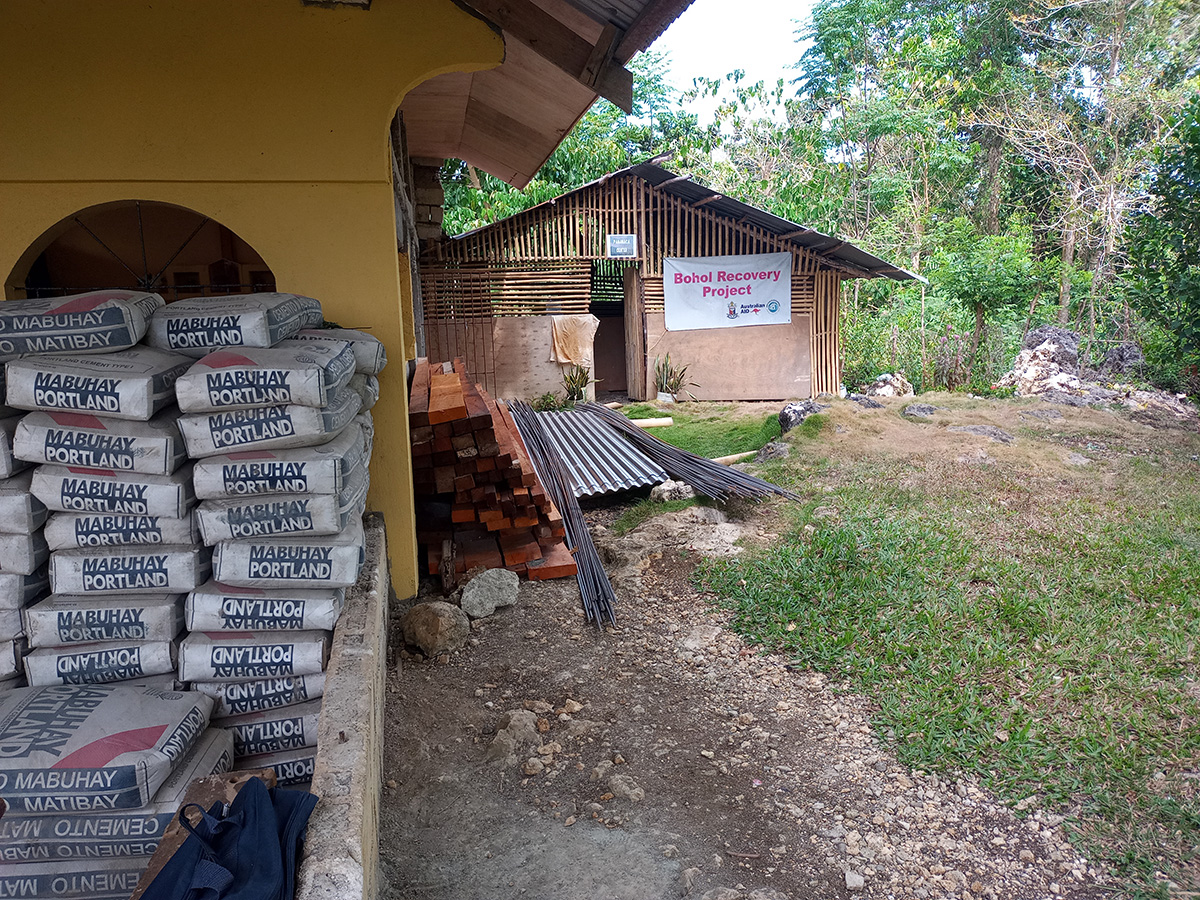How PAMAMACA, pigs and ginger improved Liza’s life
Liza Lugsanay worked in Saudi Arabia for three years but after returning home to the Philippines, her savings quickly disappeared. How did Liza today come to own pigs, run a small shop and convert her house from a bamboo house to a cement block house?
When IFI-VIMROD came to her village of Cadapdapan on Bohol Island in December 2019, offering to help build a community group for income generation, Liza was quick to join the program. VIMROD helped the community group, who called themselves PAMAMACA, to elect officials, make policies and identify local skills and assets that could be better utilised for income generation.
PAMAMACA chose three businesses: pig raising, organic gardening and making ginger tea. VIMROD organised training to build on local people’s skills in these areas.
After a delay in the program due to COVID-19 restrictions, PAMAMACA used a 100,000 pesos ($ 2,548) grant from VIMROD to buy ginger seeds and pigs. Liza was given three pigs, which she fattened for three to four months using mostly home-grown organic feed instead of more costly — and less healthy– commercial pig feed. Liza subsequently sold the pigs for a net profit of the equivalent of $ 127-152 per pig after paying the original cost of the pigs (plus $8 interest) back to PAMAMACA. Some other members had pigs that bore piglets and subsequently kept some of these piglets themselves and gave some to PAMAMACA so other members could benefit.
The rules for the ginger tea making were different. The tea was packaged and marketed collectively. Initial profits were reinvested in upscaling the business then at the end of the first year, profits were shared amongst members.
The organic gardening was the least profitable enterprise but still provided members like Liza with nutritious food for home consumption and scraps to feed their pigs. VIMROD had particularly encouraged the planting of climate resilient crops such as taro, horseradish, ginger and sweet potato, which continued to provide food even though the community has experienced very low levels of rainfall this year.
Through the project, PAMAMACA gained confidence to lobby the local government for support. One of the greatest ongoing benefits of a project like this one is the confidence community groups gain to lobby local government for support. In the case of PAMAMACA, the local government (barangay) responded positively, providing book-keeping training, ginger processing equipment and even materials to improve PAMAMACA’s makeshift storeroom. PAMAMACA also worked with the local government on community initiatives such as clean-ups and tree-planting.
Liza says the growth of PAMAMACA community group has not just improved her income and food resilience. It has given her experience in community leadership, including in public speaking. She thanks IFI-VIMROD for helping to build PAMAMACA and thanks ABM AID for providing funding support.
AID thanks the Australian Government and our AID supporters for making this program possible.
We have committed to contribute $1 for every $5 we receive from the Australian Government. This means that every donation you make to this project will be combined with funding from the Australian Government to reach more people. Your donation will allow us to extend this program.
–
AID wishes to thank all who support this project through prayer and/or donations.

Liza inspects taro grown in PAMAMACA’s shared plot in Cadapdapan. © Terry Russell/ABM AID.

Liza’s shop and cement block home in Cadapdapan. © Terry Russell/ABM AID.
